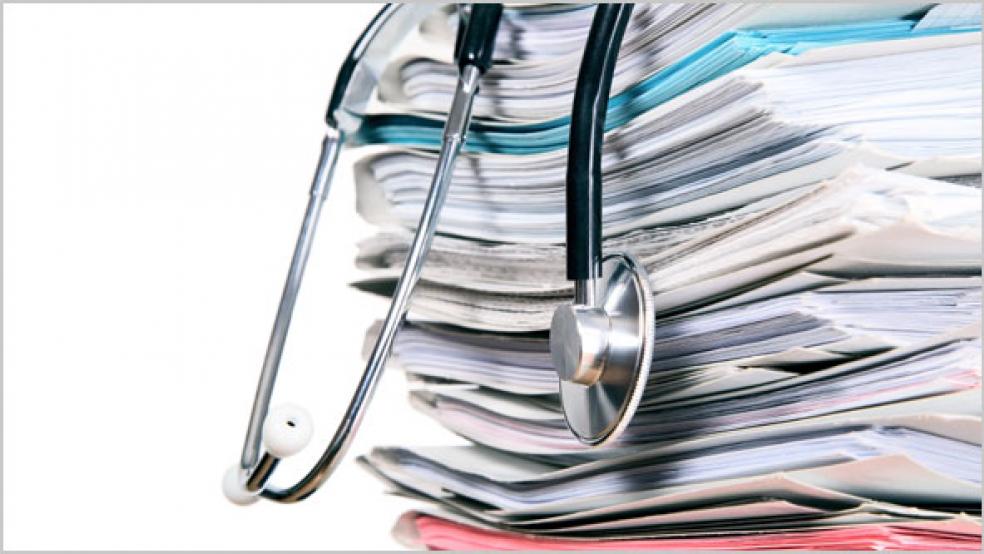On Thursday, several news outlets highlighted a new government analysis that says the overwhelming majority of uninsured people are expected to qualify for exemptions under Obamacare—meaning they won’t have to pay a penalty if they forgo health coverage.
The news stories raised concern that this could destabilize the insurance market and cause premiums to rise—since more exemptions means fewer people in the risk pool.
But don’t freak out just yet.
Health experts say that the analysis conducted by the Joint Committee on Taxation and the Congressional Budget Office did not come as a surprise to insurers who had already calculated this data before pricing premiums for next year.
Related: Uninsured Dropped Fastest in Senate Battleground States
“We were expecting the majority of uninsured people to qualify for exemptions,” Matt Buettgens health policy expert at the Urban Institute said, adding that that doesn’t mean they all will use the exemptions.
Under the law, most people are required to have health coverage or pay a penalty of either $95 per adult or 1 percent of family income- whichever is greater. That penalty is taken from annual tax returns and it is set to increase each year—the revenue is used to help finance the law.
The uptick in people eligible for exemptions isn’t likely to significantly impact premiums, but CBO does estimate the government will bring in less money from penalties.
CBO’s newest report estimates penalty collections will be $3 billion less in 2016 because of the broader exemptions carved out by the Obama administration.
“That increase is attributable in part to regulations issued since September 2012 by the Departments of Health and Human Services and the Treasury and in part to technical updates and changes in the economic outlook,” CBO said. However, it’s too early to know how many people will actually forego coverage and use an exemption.
Related: Obamacare Fraud Controls Found Severely Lacking
The administration carved out chunks of exemptions for people in certain religious groups, Native American tribes and undocumented workers-to name a few. It also recently broadened the exemption list to include victims of domestic violence, people with cancelled insurance plans or those who have experienced substantial property damage like a house fire.
The Supreme Court also played an unexpected role in expanding the pool of people eligible for exemptions when it issued the ruling that allowed states to choose not to expand their Medicaid programs. That created a wave of low-income people who became automatically exempt from the penalty.
“It’s not shocking. This has always been the case since the Supreme Court decision,” said Buettgens from the Urban Institute. Both the insurance industry as well as the administration had expected most people to qualify for exemptions-since most uninsured people fall below the federal poverty line, immediately qualifying them for the hardship exemption.
Both the insurance industry as well as the administration had expected most people to qualify for exemptions-since most uninsured people fall below the federal poverty line, immediately qualifying them for the hardship exemption.
Still, it’s hard to know how many people will actually file to use the exemptions and health experts think very few will.
As of April, just 77,000 people and families had requested exemptions, according to the Centers for Medicare and Medicaid Services.
Related: How an Obamacare Tweak Can Save Insurers Millions
Earlier this year, the CBO predicted that about 25 million people total would qualify for the exemption. However, the Health and Human Services Department expects just 12 million will actually file for the exemptions. Of course, people with incomes below the tax filing limit do not need to apply for the exemption.
“The total number of people filing for the hardship exemptions might not be as large as some are claiming,” Buettgens said “The mandate wont really be real to people until they find out about it when they file their taxes next year…then they will understand it better and might be more inclined to file for an exemption, or look at their options for coverage” once the penalty becomes real, he said.
Some say the broad range of exemptions have concerned insurers because the penalties were meant to help increase the number of people signing up for insurance—a larger pool helps stabilize premiums. And more exemptions, means fewer enrollees.
Vice President and chief actuary at Blue Cross and Blue Shield of North Carolina, Patrick Getzen told The Wall Street Journal that they had more “older and sicker people” sign up for coverage this year than originally projected. He suggested that younger, healthier people were likely taking advantage of all of the exemptions offered and forgoing coverage. "With a stronger penalty and less broad exemptions, that would be better for the risk pool."
Buettgens noted that another reason fewer people than expected might apply for the exemption is that they are opting for coverage instead. He pointed to a spate of new polls, including a Gallup poll that found the uninsured rate is at its lowest rate in the last five years.
“We know they’re buying health insurance that certainly is part of it,” Buettgens said.
Top Reads from The Fiscal Times:





